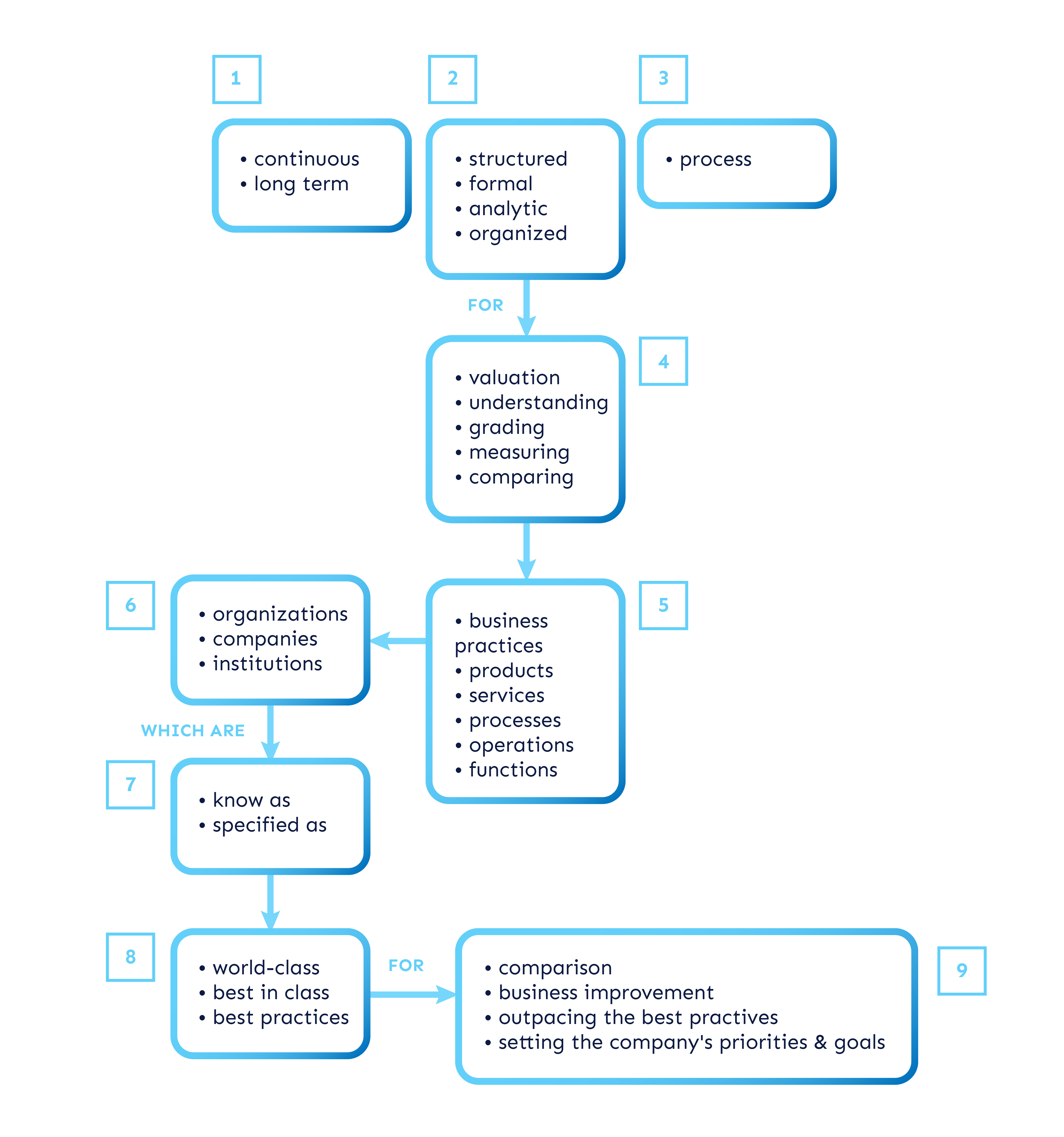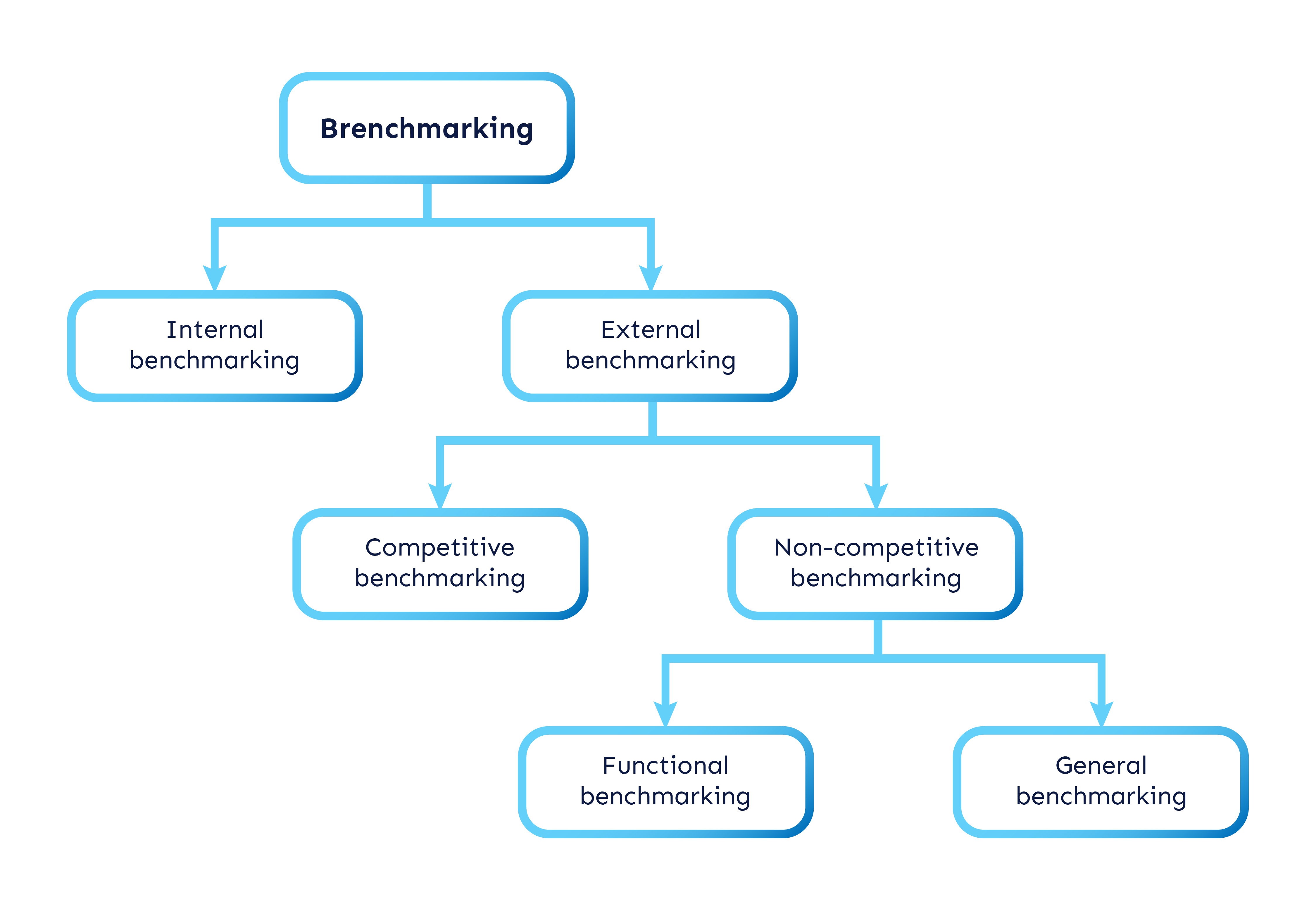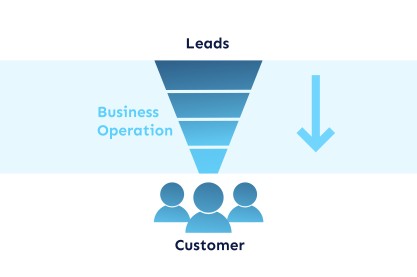Total Quality Manage...
18227 | 6 Apr 2023

In today's highly competitive business environment, organizations must constantly strive to improve performance and stay ahead of competitors. One effective tool for achieving this is benchmarking, which involves comparing one's business processes and performance against those of competitors or industry leaders. By analyzing and adopting best practices, benchmarking enables organizations to identify areas for improvement and achieve greater efficiency and profitability.
However, the success of benchmarking depends on how it is implemented within the organization. To fully realize the benefits of benchmarking, organizations must clearly understand their market position, competitive landscape, and areas for improvement. In addition, they must have well-designed business processes that can adapt to changes and remain competitive over time.
In this context, benchmarking can be a powerful tool for organizations looking to optimize their performance, satisfy customers, and use resources efficiently. In the following sections, we will explore the concept of benchmarking in more detail, including its benefits, types, and best practices for implementation.
Benchmarking is a process of comparing a company's strengths, weaknesses, business processes, efficiency, and performance with best practices from other organizations. The ultimate goal of benchmarking is to improve any activity, especially business activities, by providing helpful information to managers. Benchmarking is usually focused on comparing strategies, operations, and processes with other organizations, separating it from similar process improvement strategies within the company.
There are various definitions of benchmarking, but they all involve measuring and comparing the business processes of an organization with the business processes of leading organizations to gather the information that will help the organization implement improvements. The main purpose of benchmarking is to introduce changes in the company that would increase productivity and profit, emphasizing improving the company's competitive position. The primary objective of benchmarking is to learn and emulate best practices.
Figure 1 illustrates the different ways in which benchmarking can be understood and used:

Figure 1: Possible definitions of Benchmarking
There are several types and divisions of benchmarking depending on the subject of comparison and the organizations with whom comparisons are made. Different benchmarking types can bring varying benefits, but they also require different efforts and resources.
Figure 2 illustrates the types of benchmarking, which include:
There are also strategic benchmarking, benchmarking of achievements, process benchmarking, and international benchmarking.
Different types of benchmarking can be used for different purposes, and organizations should carefully choose which type to use based on their needs and resources.

Figure 2: Types of Benchmarking
In conclusion, benchmarking is a valuable tool for companies looking to improve their performance and achieve long-term success. It allows companies to learn from other successful companies, identify best practices, and understand their performance relative to their competitors. With the right approach, companies can leverage benchmarking to achieve operational excellence, improve their bottom line, and gain a competitive advantage in their industry.
While benchmarking has many benefits, it is important to approach it with a critical eye. Simply adopting practices from other companies without evaluating their effectiveness and fit with your organization's culture and values may not result in positive outcomes. Companies should also be mindful of the risks associated with benchmarking, such as becoming too focused on short-term results and losing sight of long-term goals, or investing too much time and resources in benchmarking at the expense of other critical business activities.
To mitigate these risks, companies should develop a robust benchmarking plan that aligns with their strategic objectives and takes into account their unique circumstances. This plan should include a clear scope of activities, a rigorous selection process for benchmarking partners, and a comprehensive evaluation framework for assessing the effectiveness of the benchmarking process. By following these steps, companies can effectively leverage benchmarking to achieve their business goals and stay ahead of the competition.
What are your thoughts on the subject above? Feel free to post a comment or start a discussion.


Leave A Comment